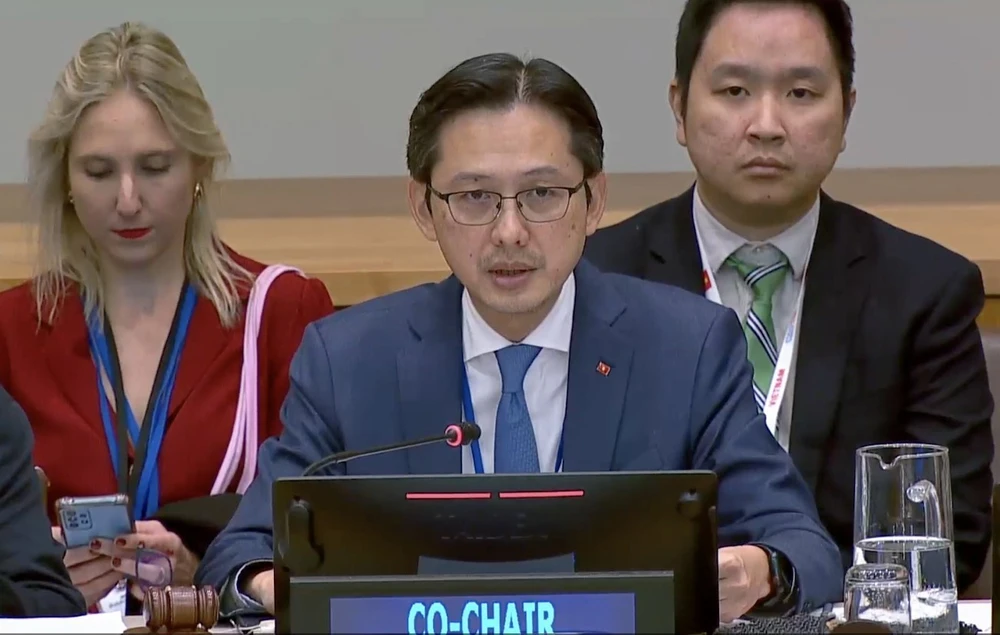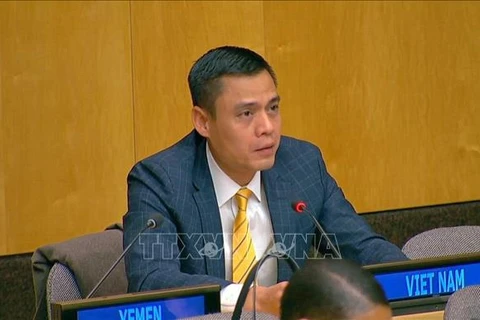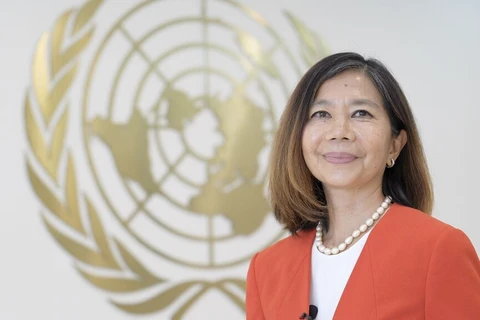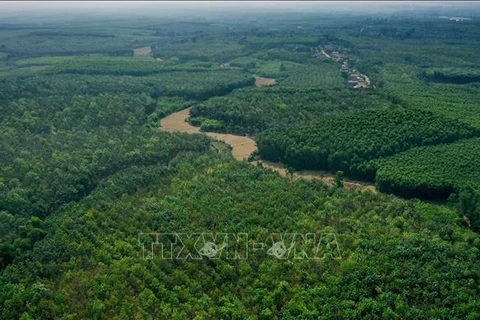
New York (VNA) – Deputy Minister of Foreign Affairs Do Hung Viet co-chaired the panel discussion “Adaptation, finance and resilience in relation to sea-level rise” with spcial envoy of the French President and Ambassador for the Poles and Maritime Issues Olivier Poivre d’Arvor in New York on September 25 (local time).
The event, held in the framework of the high-level week of UN General Assembly (UNGA) high-level plenary meeting on addressing the existential threats posed by sea-level rise, drew the participation of leaders and representatives from UN member states, particularly small island nations who have felt the disastrous impact of climate change, as well as those from international organisations and financial institutions.
The Vietnamese diplomat spotlighted Typhoon Yagi’s devastating impact on Vietnam and the risks of sea-level rise in the Mekong Delta region, stressing that countries need to develop comprehensive and long-term strategies with fundamental solutions such as building suitable infrastructure to protect coastal communities and creative measures in response to emergency situations.
Besides, they should work to raise public awareness on the issue and improve the communities’ response capacity, including developing livelihood transformation strategies, cultivation methods and sustainable farming, he added, given developing countries and small island nations having suffered the brunt of climate change.
He called on countries and relevant parties to continue sharing measures to improve the efficacy of financial mobilisation for sea-level rise and climate change response, stressing they must include the identification of suitable mechanisms as well as the application of advanced technologies to support the specific and practical demand of local communities.
Participants agreed that sea-level rise is one of the most serious consequences of climate change, posing a threat to the survival of many countries, particularly small island nations, as well as legal challenges to economy, culture, and society.
They shared experience in sea-level rise response, highlighting the necessity of the mobilisation of diverse financial resources and the application of science-technology achievements to improve coastal communities’ resilience and adaptation to the problem./.






















